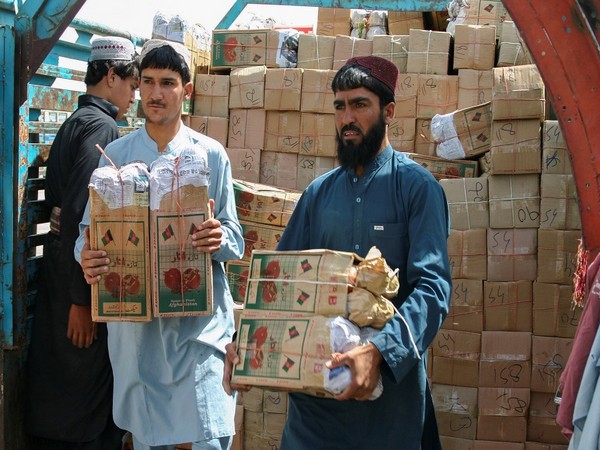After Pakistan imposed additional regulatory duty on imported foodstuff, hundreds of trucks and containers loaded with fresh and dry fruits have begun returning to Kabul from the Torkham border.
The importers feared those items would vanish from local markets if the regulatory duty were not withdrawn or reduced.
Importers at the Torkham border told Dawn that the arrival of fresh and dry fruits from Afghanistan had declined by almost 70 per cent since the imposition of 49 per cent regulatory duty on them.
They also said additional taxes had pushed the prices of Afghan grapes and apples up in the local market.
Shah Jahan, a local importer, said the import duty of one-ton grapes had gone up from Rs 14,000 to Rs 56,811 and on apples from Rs 56,000 to Rs 114,959 after the move, reported Dawn.
He said over 200 trucks and containers of fresh fruits and dry fruits would arrive in Pakistan via the Torkham border daily prior to the imposition of regulatory duty but the number fell to less than 50 with most truckers preferring to go back to Kabul to prevent fresh fruits from decaying and fearing a sudden hike in custom-related taxes.
Fruit importer Shah Jahan said Pakistan would eventually lose its biggest market for fresh fruits if Afghanistan reciprocates by imposing additional duties on Pakistani fruits.
“The export of kinno, oranges and guava will commence in early November and we fear that if the regulatory duty on the import of Afghan fruits was not withdrawn by then, we will face a similar response from Afghanistan which will confront will huge financial losses and possibly the Afghan market for our winter season fruits”, he lamented.
Resenting the ‘unilateral’ imposition of regulatory duty on dry and fresh fruits, Zahidullah Shinwari, a former president of Sarhad Chambers of Commerce and Industry, said the move was very surprising in the current situation when the country faced food shortages due to devastating floods, reported Dawn.
“Afghanistan was the first country to have started sending us duty-free onion and tomatoes after the recent floods destroyed large swaths of our agricultural lands while we slapped them with additional duties,” he said according to the leading Pakistani publication.
Shinwari said it was time to bring down custom duties on food items imported from Afghanistan to the minimum possible level both as a goodwill gesture and owing to the growing demand for all types of edibles at the domestic level following flooding.
He also feared that if the regulatory duty was not withdrawn forthwith, Afghanistan, too, would impose additional and inflated duties on a number of Pakistani export items, especially fresh fruits, in the coming winter, reported Dawn.
Haji Jabir, an office-bearer of the Khyber Chamber of Commerce, contended that the imposition of regulatory duty was in contravention of the repeated official pledges about an increase in the country’s trade with Afghanistan.
He insisted that the local business community had always advocated ease in the country’s trade with Afghanistan in particular and other neighbours, in general, to boost exports and increase revenue.
“Our country direly needs a resolution of the current financial problems. A favourable environment is a prerequisite to increase exports,” he said.
Jabir said a delegation of local traders would soon visit Islamabad to convey their sentiments to the relevant authorities about the abrupt and unilateral imposition of the regulatory duty, which they believed was largely anti-traders, reported Dawn.
He said any delay in the withdrawal of the new regulatory duty would cause huge losses to the local importers but lead to a considerable decline in exports to Afghanistan.
The chamber leader said such ‘ill-conceived’ trade policies would only benefit Afghanistan’s neighbours, which didn’t waste any opportunity to capture the Afghan market. (ANI)
